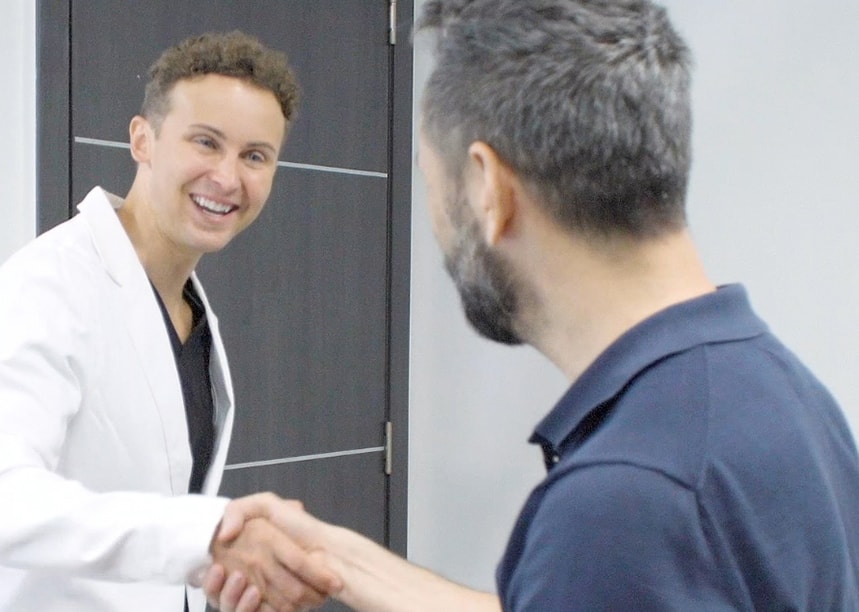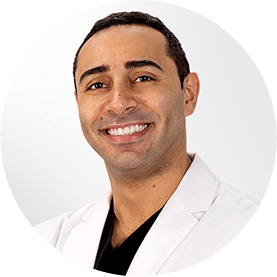Advice from Renowned Back Pain Dr in West Orange
October 14, 2021
How to Prevent Back Pain in Kids
Kids spend 12 years in school, carrying textbooks around, bent over desks, participating in physical education, and maybe even after-school sports. In addition to that, in this day and age, more children than ever before have their backs hunched, staring at a phone screen under their desks. All of this adds up to a formula for persistent back and neck pain.
According to research by the American Academy of Orthopedic Surgeons (AAOS), there has been a substantial increase in back pain, especially lower back pain, among children and adolescents aged 10 to 18. Discomfort also tends to rise with ageing (about four per cent for each year of age).
So, given that back pain has become such an issue for children, you are probably wondering how you can prevent it from affecting your kids. It is natural for parents to want to keep their kids away from back pain, and the specialists at our spine center are here to help.
Our medical director, doctor George Hanna, is Harvard trained and has helped thousands of patients in his year of experience since completing his fellowship training. This is why, being a renowned back pain Dr in West Orange, he is here to provide valuable advice on how to protect your child’s spine and prevent back or neck pain.
Make sure they wear a good backpack
A well-fitting bag is the most crucial of all school equipment. Excess weight puts pressure on the body, resulting in back discomfort. When a kid wears a backpack that is improperly positioned and fitting, they are putting themselves at risk for long-term spinal problems. Students with posture difficulties or scoliosis, two back problems that are becoming more frequent, are especially vulnerable to the incorrect backpack.

While it’s tempting to pick a backpack based on its price or appearance, practicality is far more essential. The following are some helpful hints from our physicians for selecting the appropriate one this school year:
- How the backpack fits: Your child’s backpack should never be larger or longer than their upper body, and it should never dangle more than four inches below the waistline.
- The weight of the backpack: Specialists recommend that a child’s backpack shouldn’t be heavier than 5-10% of the child’s body weight.
- Practical design: Look for cushioned back and shoulder straps with an ergonomic design. Hip and chest belts also assist in transferring weight from the back and shoulders to the hips and torso, reducing pressure. Multiple compartments can aid in weight distribution as well.
- Wear: When carrying the backpack, your kid should always utilize both straps to avoid muscular strain and postural issues. It’s also crucial to avoid overloading the backpack. Determine what you need to bring and what you can leave at home, and pack light wherever feasible!
Ensure they get enough rest
We all know that most of us do not get enough sleep on a regular basis. While it may appear that children have limitless energy, the fact is that kids require rest to replenish their bodies and support good brain function. According to several studies, getting enough rest might even be an effective way to prevent getting hurt.
Most people’s beds are too soft, so skipping the three-inch pillow top mattress pad is a good idea. Also, doctors recommend limiting screen time and avoiding stimulants like sugar and coffee late in the day.
Talk to them about “tech neck”
The average individual spends two to four hours each day on their smartphone reading or messaging. Teenagers, however, spend even more time on their gadgets. This prolonged usage of a device frequently results in “tech neck,” a term developed to describe the posture of the head and neck when holding the device at a lower level (near your chest or back) and the eyes are facing down at the screen.
The average human head has a weight between 10 and 12 pounds, but studies have shown that while we’re bent over our phones, the weight of our heads may add up to as much as 60 pounds. When you consider how long children are in that position, it’s no wonder that they start to develop neck discomfort and back problems. And this does not include the time spent at their computer, doing homework, or playing video games.
Encourage youngsters to practice neck and shoulder mobility rotations, as well as chin tucks and shoulder blade retractions. A healthcare expert may teach your kid how to stretch overused muscles and correct their posture with a foam roller or mobility ball.
Hydration is very important
The reason why it’s so difficult to convince ourselves to drink enough water on a daily basis remains one of the unexplained mysteries of humanity. While regular hydration is vital for everyone, it is especially crucial for active children. Every cell, tissue, and system in our body contains water, which works to lubricate and protect the brain, spine, and joints.
How much water your kid should drink may vary depending on their age, weight, and degree of exercise, but you can obtain useful information on the internet. In any case, make sure they bring a water bottle to school with them and urge them to drink from it throughout the day.
Today’s children are busier than ever, putting a lot of demand on their developing bodies. You can safeguard your child’s spine and help avoid back pain and injuries that might affect them as they grow older by adopting a proactive approach to their health. Nobody wants to live with back pain, and by following these tips above, you can help your kid enjoy a pain-free life.
If pain installs and keeps becoming an issue in your kid’s everyday life, then you may want to consider taking them to a back pain dr in West Orange. At Pain Treatment Specialists, Dr. Michael Nguyen and Dr. George Hanna are here to help your kid overcome potential back problems before they turn into a prevailing concern. Feel encouraged to book an appointment at either of our clinics in Jersey or New York. You can find our dedicated team of back specialists in West Orange, NJ Pain Center near the Essex Country Club.
Book a Consultation
Scheduling a consultation with one of our pain treatment specialists is one of the best ways to determine the proper solution for pain relief.
Meet Our Team of Back Pain Specialists
All of our Pain Doctors in New Jersey are Harvard Trained and Board Certified in Pain Management

Back Pain Doctor Clifton & West Orange NJ
Dr. George Hanna
Dr. Hanna is a Harvard Trained back specialist in New Jersey and New York. He serves as Medical Director of Pain Management.

Back Pain Doctor Clifton & West Orange NJ
Dr. Laura Lombardi
Dr. Lombardi is a Harvard Trained back pain treatment doctor, currently seeing patients in Clifton and West Orange, New Jersey.

Back Pain Doctor Clifton & West Orange NJ
Dr. Shane Volney
Dr. Volney is a Harvard Trained back treatment doctor seeing patients in the NJ areas of Clifton & West Orange, and in NYC.

Back Pain Doctor Clifton & West Orange NJ
Dr. Michael Nguyen
Dr. Nguyen is Harvard Trained and Board Certified in Pain Management. His pain center accepts major medical insurances and Medicare.

Dr. George Hanna

Dr. Laura Lombardi
Dr. Lombardi is a Harvard Trained back pain treatment doctor, currently seeing patients in Clifton and West Orange, and Paramus New Jersey.

Dr. Shane Volney
Dr. Volney is a Harvard Trained back treatment doctor seeing patients in the NJ areas of Clifton & West Orange, and in NYC.

Dr. Michael Nguyen
Dr. Nguyen is Harvard Trained and Board Certified in Pain Management. His pain center accepts major medical insurances and Medicare.
